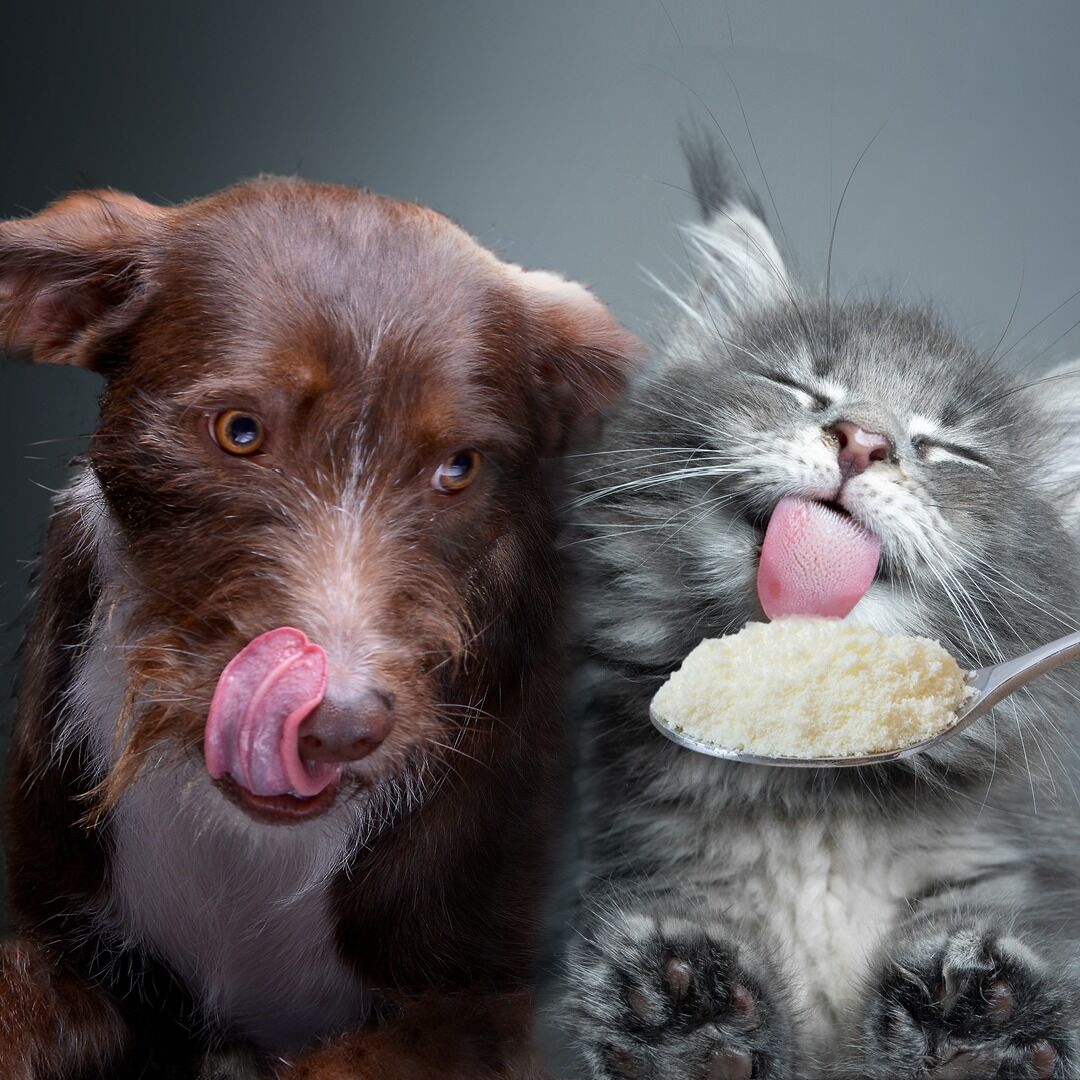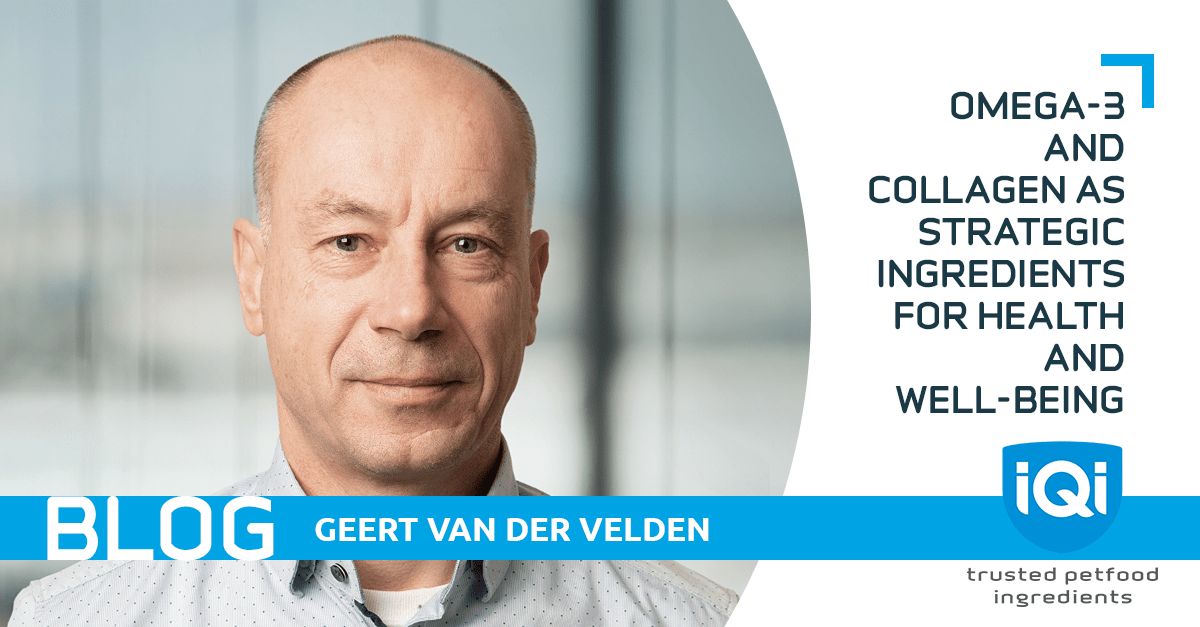

Your region has been set to
Change region
Close


Your region has been set to
Change region
Close



January 30 2023 - Blog
 At IQI Trusted Petfood Ingredients, we have been promoting long-chain omega-3 fatty acids for years – and with good reason. Scientific studies keep on confirming the ingredient’s many health benefits for cats and dogs. A relatively new beneficial ingredient is collagen, which has some health benefits that overlap with omega-3. Ensuring pets get the most out of pet food requires a strategic and innovative mix of such functional ingredients.
At IQI Trusted Petfood Ingredients, we have been promoting long-chain omega-3 fatty acids for years – and with good reason. Scientific studies keep on confirming the ingredient’s many health benefits for cats and dogs. A relatively new beneficial ingredient is collagen, which has some health benefits that overlap with omega-3. Ensuring pets get the most out of pet food requires a strategic and innovative mix of such functional ingredients.
Long-chain omega-3 fatty acids and collagen are very popular ingredients for making functional health and wellness claims, as I wrote in my recent blog. The two ingredients can be used to complement each other. They both contribute to healthy joints and overall mobility, and support a healthy skin and coat. Using these ingredients in pet food formulas requires careful consideration of the different health benefits, availability, and sustainability of ingredients.
The long-chain omega-3 eicosapentaenoic acid (EPA) and docosahexaenoic acid (DHA) offer a wide range of health benefits for cats and dogs. These include strengthening the immune system, reducing inflammation, helping in the prevention and treatment of diseases, and contributing to healthy joints and overall mobility. Only last month, a large-scale systematic review and meta-analysis of natural health products for mitigating the effects of canine and feline osteoarthritis, a widespread musculoskeletal disorder in pets, highlighted the efficacy of omega-3-enriched diets and omega-3 supplements. The study showed how a combination of omega-3 long-chain fatty acids and collagen can reduce inflammation in the joints, while collagen can also prevent the degeneration of cartilage.
While collagen is naturally present in various animal-based ingredients, fish oil or salmon oil is traditionally mixed into the pet food formula to add omega-3 fatty acids. High-omega-3 fish oil in particular contains high concentrations of EPA and DHA, but the supply cannot meet the fast-growing global demand for pet food. Certain species of microalgae, however, have a high content of DHA and can be grown under controlled conditions. This offers a fully traceable, sustainable, clean, and high-quality source of DHA to help meet global demand, as I explain in a previous blog.
As a nutritious, highly digestible source of protein, collagen provides structure, support, and strength to skin, bones, muscles, and cartilage. A well-balanced and high-quality diet normally provides cats and dogs with the raw ingredients required to produce sufficient collagen naturally. Collagen production can slow down, however, due to aspects like daily wear and tear, genetic issues among certain dog breeds, UV rays, stress, and ageing. Supplementing pure collagen can therefore be beneficial, especially for older cats and dogs. Pure collagen, or collagen peptides, can be added to pet food as a powder originating from chicken, pork, beef, or fish.
Would you like to know more about the pet health benefits of collagen and the possibilities for pet food applications? Download our latest white paper ‘Collagen as an increasingly popular functional ingredient in pet food’, which covers all important aspects of collagen and collagen peptides for pet food applications.

Geert van der Velden is IQI Trusted Petfood Ingredients’ Innovation Manager responsible for Business Development, generating new products and concepts that meet the needs of existing and new customers. Geert has more than 25 years’ experience in the international pet food industry and has gained knowledge and experience in many sections of IQI’s business.